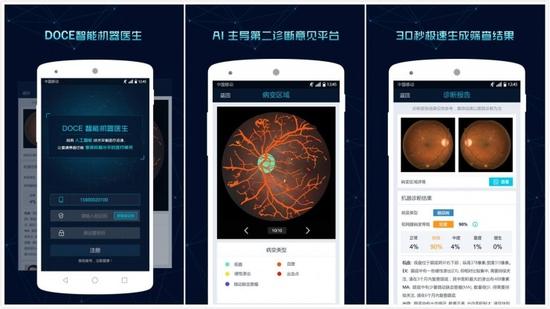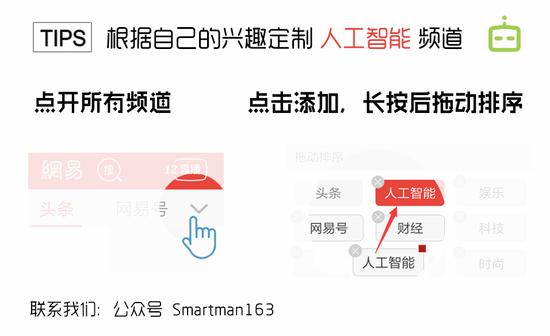(Original title: Peptide building blocks use AI to help doctors "see the film", diagnose the speed of sugar network disease by 20 times)
 Peptide block founder Bo Wenjie
Peptide block founder Bo Wenjie
Bo Wenjie is a serial entrepreneur in the field of big data. He was once a founding member of Big Data Corp. and Xinshi Interactive Operations. He has extensive experience in big data, artificial intelligence products, operation and promotion.
Because it has been doing big data before, it's a natural process to move from big data to artificial intelligence. However, in the analysis process of big data, the application point is still a bit thin, and artificial intelligence may be able to reach a conclusion level to a greater extent. So we wanted to combine artificial intelligence and medical care at this point to see exactly what a specific application scenario is.
There are numerous entrepreneurial projects that combine AI and medical care. However, the peptide building blocks that were established in July 2016 have chosen to read through the ocular fundus images of glycosylbulosis and use artificial intelligence to assist medical imaging diagnosis. In fact, DeepMind, an artificial intelligence subsidiary of Google, has also extended the reach of artificial intelligence to the medical level. Its first area of ​​choice is the screening of sugar net disease. In China, there are also not less than 10 startups that have been laid out for screening and diagnosis of sugarnet disease.
According to the report of the World Health Organization (WHO), about 100 million adult people in China are in the pre-diabetes phase, about 110 million diabetics, and about 1/3 of diabetics (about 37 million) suffer from diabetic retinopathy (referred to as “sugar netâ€). "Sickness," of which 1/3 (about 12 million) are at risk of blindness. On the other hand, the lack of medical resources in China has made grass-roots communities even have no eye equipment to screen. This is why Bai Wenjie chose to intervene in this huge market. Their goal is to increase the efficiency of doctors while balancing medical resources.

On a technical level, peptide building blocks apply deep learning techniques to medical image recognition. They originally created the PL-NET (Local Information Based Deep Recognition Network) operator to apply the deep network to lesion identification markers, disease progression judgment, and pathological analysis. Specific technical advantages are mainly reflected in the following aspects:
high speed. It usually takes 3-5 minutes for the doctor to read the film, and the peptide building block can use the AI ​​technology to complete the lesion mark of a fundus image in 13-15 seconds. Overall, including case generation, lesion judgment, and classification are no more than 30 seconds, which can maximize the doctor's efficiency.
Good stability. The machine has a certain degree of recognition when reading a fundus image, and the actual scene may be applied to a certain degree over the doctor.
High accuracy. Accuracy on specific datasets exceeds 97%.
Lei Fengnet.com learned that peptide building blocks have accumulated more than 200,000 standard medical images through cooperation with hospitals and medical institutions, including fundus photographs, X-ray, CT, and deep desensitization diagnosis results. In the next step, peptide building blocks will apply artificial intelligence assisted diagnostic techniques to more fields such as X-ray chest and chest CT.
On the product side, Peptide Building Blocks launched an artificial intelligence assisted reading medical imaging platform and built a medical big data artificial intelligence training platform. In addition, artificial intelligence eyepiece readers for C-clients have also been officially launched.
The medical imaging diagnostic robot is a low-cost and efficient auxiliary reading tool for different medical institutions. It can use an artificial intelligence technology to achieve accurate reading in seconds, and can realize disease diagnosis, graded diagnosis, lesion identification, and case automatism according to the image conclusions. Generation, treatment plan recommendations, and disease progression prediction, etc.
The medical big data artificial intelligence training platform includes four modules: integrated cleaning of data, marking of marking platform, rapid robot training, and application of standard interfaces. While achieving the high-quality collection of medical images and labeling data, it is also possible to open the data labels for medical practitioners and train them to assist in the diagnosis of robots to assist in the formation of scientific research results.
APP for C-clients – Doce Diagnostic Tool for Diabetes, patients can upload images to the peptide blocks according to the images they obtained in the hospital, so that they can quickly obtain the disease level and analysis of the lesions, ie obtain a second diagnosis . Bo Wenjie once told Lei Feng Net (public number: Lei Feng network) ingenuity open class that the use of peptide building blocks data are basically provided by the top three hospitals, the accuracy of the machine can basically keep the top doctors.

Bo Wenjie explained that the Peptide Building Blocks launches APP mainly to acquire users and raise awareness. "At least in this area, we are the first company that can launch an artificial intelligence app to make a second diagnosis on the C side."
However, taking into account that most of the diabetic patients are middle-aged and elderly people, in order to provide users with convenient services, their current way of acquiring C-end users is more around the public number. Through the use of free joint fundus screening activities in community hospitals to conduct offline promotion, this has also increased the workload to a certain extent, and the efficiency is not very high. In response, Bo Wenjie said, "AI really has to land. We can't float in the sky. It's not logically feasible. We'd rather do a bit more and do some offline (promotion) things."
From this, it can be seen that the peptide building blocks use the business model of B+C, and at the C-side, they provide users with diagnostic opinions through fee-based services. On the B side, it has already cooperated with more than 20 triple-A hospitals and primary medical institutions. Peptide Block hopes to open up the entire medical process and can help the hospital to carry out grading diagnosis and treatment to improve the efficiency of the entire medical system.
Our vision is actually very simple, that is, we hope to use artificial intelligence technology to balance medical resources, not only to improve doctor efficiency. Especially at the grassroots level or in the community, there is actually not enough good resources. We can learn the techniques of the top three hospitals through AI. Even if we learn 80% of them, we can help patients with diabetes and really do a good job of grading. Or, let ordinary patients do not need to go to the top three hospitals to be able to enjoy our excellent services.
Currently, there are about 10 peptide building blocks and the average experience of the core data team in the big data industry is more than 3 years. In terms of revenue, they hope to achieve a break-even balance this year. In April of this year, peptide building blocks received millions of angel investments from a pharmaceutical group, and a new round of financing has also started.
 燑br>
燑br>
BT Speakers,Best BT Speaker,Portable BT Speaker,Bluetooth BT Speaker
TOPWAY EM ENTERPRISE LIMITED , https://www.topwayemltd.com
